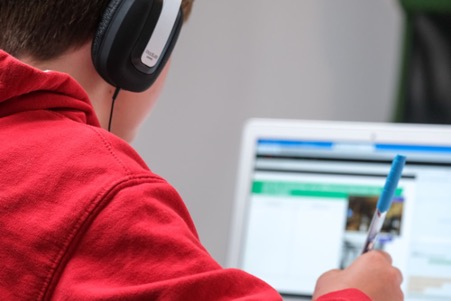IT lessons are a key feature of the UK curriculum, but why are they so important?
In the age of the Internet, learning about how computers work is more valuable than ever before. An understanding of IT not only opens doors to studying at top universities for computer science, but also fosters a wide-ranging set of skills to last a lifetime.
In the following guide, we’ll outline what studying computer science means in primary schools now – and why your child might benefit from studying it, both in school and at home.
- What is computer science?
Essentially, computer science is the study of computers and information. In primary school, children are introduced to an array of topics including algorithm, coding, computer bugs, and programming.
Since many of these skills and topics can be developed interactively, IT in schools usually focuses on games and problem-solving. In KS1, children might be encouraged to start their own projects on computers, too – including learning how to make art on a computer.
- Why should computer science be taught?
Learning how to use computers forms an understanding of how technology works. Children enjoy using technology and most use it on a daily basis, but they often take it for granted and might not consider how their gadgets were made.
Furthermore, computing lessons now also prompt children to ask broader questions surrounding technology. It’s essential for children to understand how computers can help them learn, what the internet is, and how to use it safely – including looking after their personal information.
- What are the wider benefits of learning computing?
Extensive research by technology experts OKdo has revealed that learning to code benefits children in multiple ways, and even boosts their learning in other areas. After running a survey of almost 7,000 UK parents, they discovered that:
- Over 86% of primary school teachers believe that learning to code develops a child’s problem-solving skills
- Over one in three teachers agreed that computing lessons improve a child’s capacity for teamwork
- At least half of primary and secondary school teachers believe that computer science lessons improve creative thinking abilities
- Overall, 96% of all teachers believe that other hard and soft skills can be improved by lessons in computer science
- How can I get my children more interested in computing?
Plenty of additional resources are available to help encourage children to get involved with programming, both inside and outside of the classroom.
If you’re interested in helping your child learn how to code at home, you could start by looking at the fantastic range of single-board computers available online, including the Raspberry Pi or an Arduino Kit. These gadgets allow learners to understand hardware and apply their skills to create fascinating interactive projects.
Why not give it a go? If you’ve been learning to code with your child at home, feel free to share your experiences in the comments section below.






